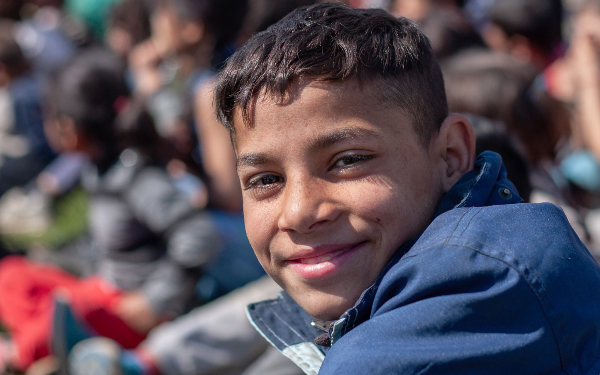
 This article comprises tips taken from a Community Care Inform guide about working with Gypsy and Traveller communities. The full guide is directed primarily at children’s services practitioners but many of the key messages and principles are relevant to adults’ social workers too.
This article comprises tips taken from a Community Care Inform guide about working with Gypsy and Traveller communities. The full guide is directed primarily at children’s services practitioners but many of the key messages and principles are relevant to adults’ social workers too.
The guide is written and updated by Friends, Families and Travellers, a national charity that works on behalf of Gypsies, Roma and Travellers.
Subscribers can access the full content on Inform Adults and Inform Children.
There are a number of different groups who fall under the title of Gypsies and Travellers, including:
- Roma, Romany Gypsies, Irish Travellers, Scottish Gypsies and Travellers (who are all recognised as ethnic minority groups and therefore protected against race discrimination under the Equality Act 2010);
- Welsh Gypsies and Travellers;
- New Travellers;
- Bargees and other liveaboard boaters;
- Travelling Showmen.
While members of each specific community may share some common experiences, every person is individual. There can be no replacement for listening to each individual and/or family about their own values and experiences.
Overcoming fear from families about social workers
Social services are rarely seen by Gypsy and Traveller parents as a resource for support. As a way of dealing with social services intervention, families may feel that the best thing to do is to pull away. This can then be interpreted by social workers as them being evasive and unwilling to co-operate.
This means that it may be necessary to spend extra time building up trust with Gypsy and Traveller families. You may find it helpful to encourage them to appoint an independent advocate, perhaps from a Gypsy or Traveller organisation, or a family friend whom the person you are working with trusts. This will make it clear that you understand the vulnerable position they are in and are willing to find ways to support them.
Practice tips
- Learn more about Gypsy and Traveller culture
When working with Gypsy and Traveller families, take the time to learn the facts about their cultures, values and traditions from unbiased and fair sources. Media depictions are often negative and unrepresentative, so ask the family you are working with or a Gypsy and Traveller organisation to help you learn more. By showing willingness to proactively engage with Gypsy and Traveller cultures, you will improve your communication with families and also learn how you can provide the appropriate forms of support.
- Ensure you communicate in the best way for the family
Only 56.8% of Gypsies and Travellers who responded to the 2021 Census reported having any formal qualifications. This may mean that literacy could be an issue for some parents you support and that information in written form may be difficult to understand.
While it might be standard practice for you to deliver information in written form, it is important that this is backed up with a verbal explanation and an opportunity to ask questions.
Difficulties around literacy may be embarrassing for some parents, who may already feel their capabilities are being called into question by the fact they are going through the child protection process. So, instead of asking, “Can you read?”, you could say, “Would you like some help reading this?”
- Make efforts to engage in cross-boundary collaborations
As nomadism is an important part of Gypsy and Traveller cultures, it is likely that some families that you are working with will want to travel. This is something you should discuss at an early stage and when planning support. Travelling has an important economic and social function for many families. Some will have patterns of nomadism and will have a good idea of where they will be travelling to and when. If this is the case, it is important to make contact with social workers in that area and agree a collaborative approach to supporting the family. If this is not the case, open communication and agreement with the family may be necessary.
- Challenge discrimination against Gypsies and Travellers at every opportunity
Prejudice and discrimination against Gypsies and Travellers is common and can often go unchallenged, even in professional contexts.
Romany Gypsies, Irish Travellers and Scottish Gypsies and Travellers are defined as ethnic groups and protected from discrimination under the Equality Act 2010. So, not only do professionals have a moral imperative, but they also have a legal one not to discriminate against them. Also, under the public sector equality duty (section 149 of the Equality Act), councils must have due regard to the need to eliminate unlawful discrimination in the exercise of their functions. As a result of fear of discrimination or bias, some Gypsies and Travellers may, for example, feel more comfortable choosing their own psychologist for psychological assessments and opt for a lawyer who is not local during court proceedings, and they should be encouraged to do this.
A history of suspicion and mistrust has often marked the relationship between Gypsy and Traveller families and social workers. The only way this can be overcome in practice is by building trusting relationships between the two.
This cannot be achieved overnight, but it is essential that Gypsy and Traveller families and children feel that their culture and ways of life are approached in a positive way by social workers.
Subscribers can access the full guide on Inform Adults and Inform Children.






 Bournemouth, Christchurch and Poole
Bournemouth, Christchurch and Poole  Hampshire County Council
Hampshire County Council  Lincolnshire County Council
Lincolnshire County Council  Norfolk County Council
Norfolk County Council  Northamptonshire Children’s Trust
Northamptonshire Children’s Trust  South Gloucestershire Council
South Gloucestershire Council  Wiltshire Council
Wiltshire Council  Wokingham Borough Council
Wokingham Borough Council  Children and young people with SEND are ‘valued and prioritised’ in Wiltshire, find inspectors
Children and young people with SEND are ‘valued and prioritised’ in Wiltshire, find inspectors  How specialist refugee teams benefit young people and social workers
How specialist refugee teams benefit young people and social workers  Podcast: returning to social work after becoming a first-time parent
Podcast: returning to social work after becoming a first-time parent  Podcast: would you work for an inadequate-rated service?
Podcast: would you work for an inadequate-rated service?  Family help: one local authority’s experience of the model
Family help: one local authority’s experience of the model  Workforce Insights – showcasing a selection of the sector’s top recruiters
Workforce Insights – showcasing a selection of the sector’s top recruiters 

 Facebook
Facebook X
X LinkedIn
LinkedIn Instagram
Instagram
[…] Advice from a Community Care Inform guide on how social workers can positively engage with Gypsy and Traveller communities. Read more. […]